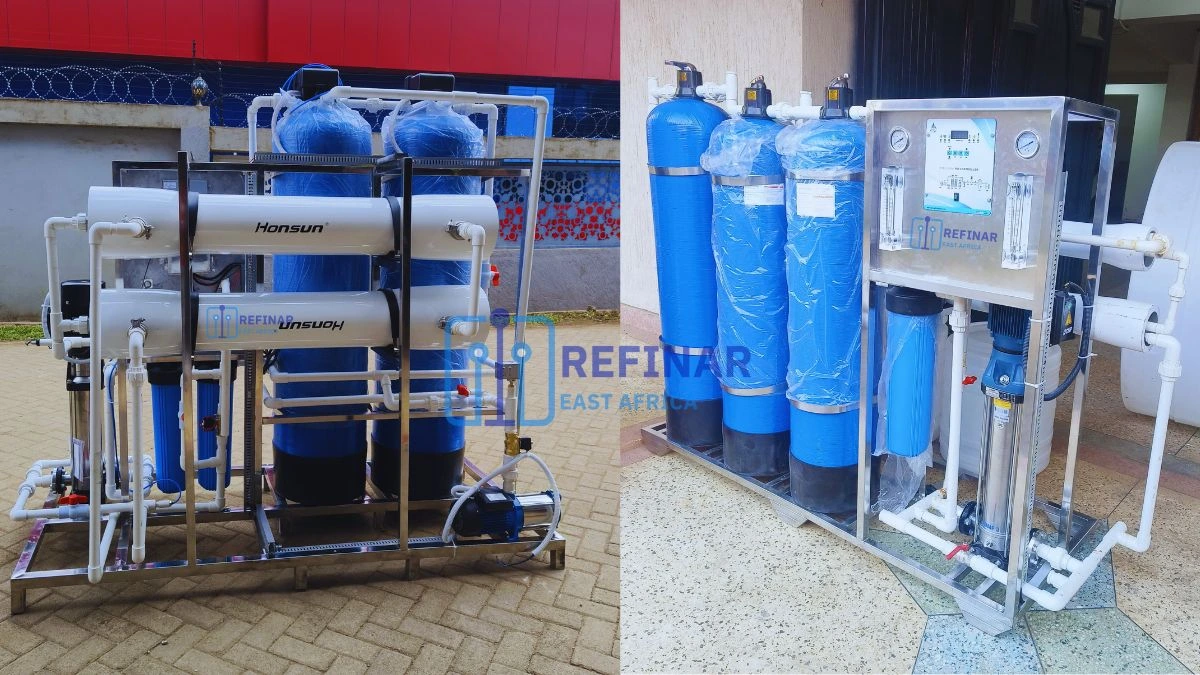Whether you’re managing a restaurant, operating a manufacturing facility, or running a hospital, access to clean, purified water ensures operational efficiency, meets regulatory standards, and enhances your client’s and staff’s health and satisfaction. With numerous options available, selecting the right water purifier can be challenging. Here’s a comprehensive guide to help you make the right choice.
Assess Your Water Quality
The first step in choosing the right water purifier is to understand the quality of your water. Different sources of water, such as municipal supplies, boreholes, or surface water, can have varying levels of contaminants. These impurities could include visible particles like sand or sediment and invisible contaminants such as bacteria, heavy metals, or chemicals like chlorine.
Professional water testing services can provide an accurate analysis of your water’s composition. If that’s not an option, you can use home testing kits for preliminary results. Once you know what impurities you’re dealing with, it becomes easier to choose a system that addresses those specific issues.
Understand Your Business Needs
Every business has unique requirements for water quality and usage. For instance, restaurants and cafés need water purifiers that can eliminate chlorine and sediments to improve the taste and smell of food and drinks. Healthcare facilities, on the other hand, require systems that ensure microbiological safety to protect patients.
Industrial operations might need purifiers that can handle high levels of specific chemicals or salts used in manufacturing processes. For businesses like hotels, large-scale systems capable of maintaining consistent water quality for many users are essential. Understanding your specific water usage and quality needs is critical for selecting the right purification system.
Explore Types of Water Purification Systems
Several water purification systems are available, each suited to address specific contaminants. Reverse Osmosis (RO) systems are ideal for removing dissolved salts, heavy metals, and hard water minerals. Ultraviolet (UV) purification effectively kills bacteria and viruses, making it perfect for healthcare and food industries.
Activated carbon filters are commonly used in restaurants to improve the taste and smell of water by removing chlorine and organic compounds. Sediment filters, which trap large particles like sand and rust, are often paired with other systems as a pre-treatment step. For businesses dealing with hard water, water softeners can help reduce scaling in equipment. Understanding these technologies ensures you choose a system that meets your specific needs.
Capacity and Flow Rate
The capacity and flow rate of a water purification system are crucial factors, especially for businesses with high water demand. Calculate your business’s daily water usage and peak consumption hours to help you determine the right system size and flow rate.
For instance, a small café may only need a system that handles a few hundred liters per day, while a factory or hotel may require a system capable of processing thousands of liters. Choosing a system that matches your demand prevents disruptions during peak hours and ensures consistent water quality.
Energy Efficiency
Energy consumption is an important consideration, especially for businesses looking to reduce operating costs. Opt for energy-efficient water purifiers that provide reliable performance while consuming minimal power.
Additionally, consider systems from manufacturers that follow environmentally friendly practices. Look for purifiers with recyclable filters and minimal waste generation to enhance sustainability. Choosing eco-friendly systems benefits the environment and enhances your business’s reputation as a socially responsible entity.
Installation and Maintenance
The ease of installation and maintenance can significantly impact the long-term performance of your water purification system. Some systems, like RO units, require professional installation to ensure proper functioning. Before purchasing, ensure that your chosen purifier fits within your available space and infrastructure.
Maintenance is equally important. Most systems require periodic filter replacements and occasional cleaning to operate efficiently. Inverters in RO systems, for instance, may need replacement every 10–15 years. Choosing a system with good after-sales support and a solid warranty can help you manage maintenance easily.
Local Regulations and Compliance
Many industries are subject to strict regulations concerning water quality, especially in the food, healthcare, and manufacturing sectors. Check with local authorities like KEBS to ensure your chosen water purifier meets all necessary compliance standards.
Budget and Cost Considerations
While water purifiers are a valuable investment, their costs can vary significantly. The initial price depends on the type, size, and technology of the system. However, don’t forget to factor in operating costs, including electricity, filter replacements, and maintenance.
Customization and Scalability
Every business is unique, and your water purification system should reflect that. Look for suppliers who can customize systems to meet your specific needs. For instance, a manufacturing facility may benefit from a combination of RO and UV technologies for comprehensive purification.
As your business grows, your water needs may increase. Invest in a scalable system that can be upgraded or expanded to accommodate future demand.
Choose a Trusted Supplier
The quality of your water purification system depends largely on the supplier. Work with reputable suppliers like Refinar East Africa who have experience providing solutions for your industry. Check customer reviews, testimonials, and case studies to gauge their reliability.
Additionally, ensure the supplier offers after-sales support, including installation, training, and maintenance. A trusted partner can help you maximize your system’s performance and lifespan.
Why Invest in a Water Purification System for Your Business?
A high-quality water purifier ensures clean, safe water for your operations, enhancing efficiency, meeting regulatory standards, and protecting your clients and employees. From improving product quality to reducing equipment damage, the benefits of investing in a water purification system far outweigh the costs.
At Refinar East Africa, we specialize in providing tailored water purification solutions to meet businesses’ unique needs. Our systems are designed to deliver consistent performance, energy efficiency, and long-term reliability. Contact us today to learn how we can help ensure your business always has access to clean, safe water. Let us help you ensure your business always has access to clean, safe water!


